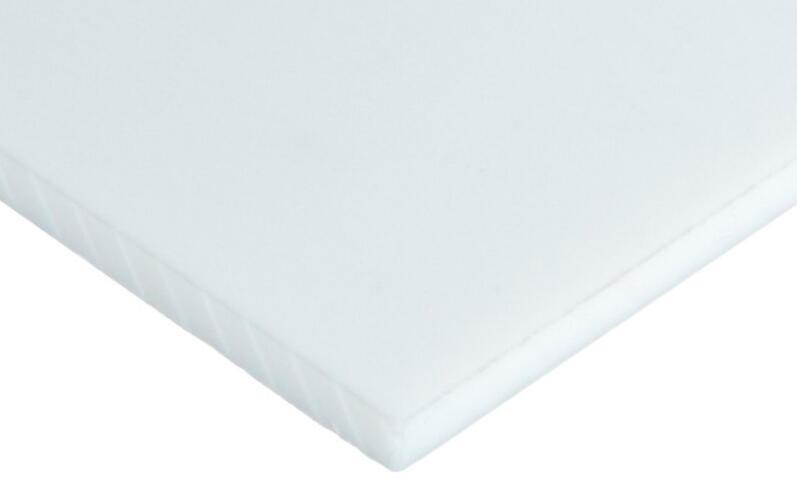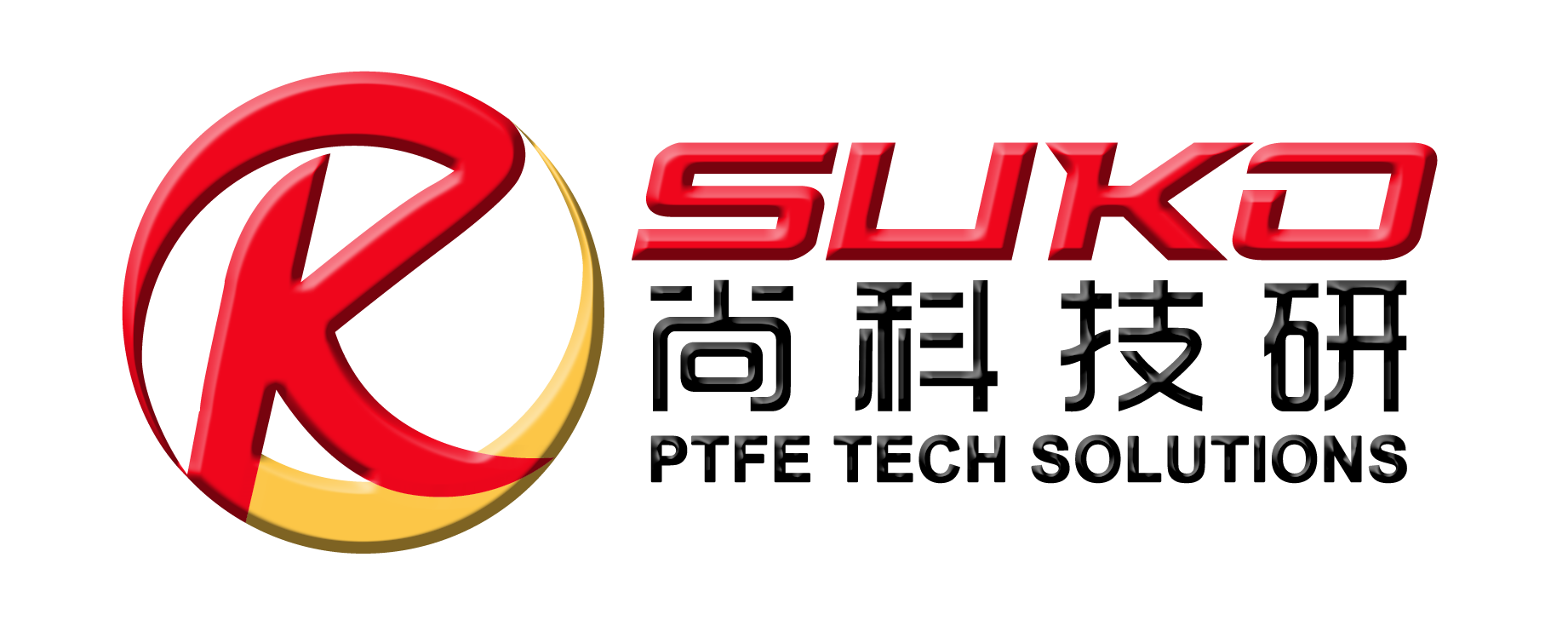There are two types of PTFE plates: molding and skiving/turning. The molding plate is made of polytetrafluoroethylene resin by molding at room temperature, and then sintered and cooled. The turning plate is made of PTFE resin by pressing, sintering, and peeling.
There are two types of PTFE plates: molding and skiving/turning. The molding plate is made of polytetrafluoroethylene resin by molding at room temperature, and then sintered and cooled. The turning plate is made of PTFE resin by pressing, sintering, and peeling.
PTFE plate has the best abrasion resistance among all engineering plastics and is the most eye-catching. The higher the molecular weight, the more wear-resistant the material, even more than many metal materials (such as carbon steel, stainless steel, bronze, etc.). For example, UHMW-pe pipes have a service life of 4-6 times that of steel pipes under conditions of strong corrosion and high wear, and the transmission efficiency is increased by 20%. It fully demonstrates the superiority of “energy saving, environmental protection, economy, and high efficiency”.
What are the advantages of the PTFE plate?
High-temperature resistance – The working temperature can reach 250℃.
Low-temperature resistance – Has good mechanical toughness; even if the temperature drops to -196℃, it can maintain 5% elongation.
Corrosion resistance – It is inert to most chemicals and solvents, and can withstand strong acids and alkalis, water and various organic solvents.
Weather resistance – Has the best aging life among plastics.
High lubrication – The lowest coefficient of friction among solid materials.
Non-adhesion – It is the smallest surface tension among solid materials and does not adhere to any material. The friction coefficient of mechanical properties is very small, only 1/5 of polyethylene, which is an important feature of the perfluorocarbon surface. In addition, because the fluorine-carbon chain intermolecular forces are extremely low, PTFE is non-sticky.
Non-toxic – With physiological inertness, long-term implantation of artificial blood vessels and organs in the body without adverse reactions

The application range of PTFE plate is as follows:
1. Utilizing the characteristics of low friction coefficient, it is used for offshore oil drilling derrick slide veneer, dock slide veneer, river dam gate slide veneer, bridge telescopic support slide veneer, various machine tools, boring machines, Grinder, planer sliding guide veneer, etc.
2. Using its non-stick properties, it is used in the sugar industry, clothing industry, food, and tobacco baking conveyor belt, printing, and dyeing industry anti-sticking anti-corrosion coating layer of various guide rollers, etc.
3. The use of dielectric motors has excellent performance and is used in thermal power stations, electrolytic cells, sealing rings, printed circuits in electronic appliances and electronic computer industries, copper-clad substrates, various cutting-edge and special equipment components.
4. Taking advantage of its good chemical stability, it can be mainly used for gaskets, linings, valve discs, and diaphragms of large-scale valves in petroleum, chemical, and chemical industries, as well as linings of various reaction vessels, storage tanks, and reaction towers, distribution plate, etc.
Application of modified PTFE plate

Modified PTFE plate is the preferred material for corrosion-resistant lining, so what are the application areas of the modified PTFE plate?
As a sealing material, modified PTFE plates are widely used in machinery, petrochemical, transportation, textile, and construction industries. According to the selected gas permeability of the PTFE plate after treatment, it can be used as a separation material to selectively permeate gas or liquid, especially to filter corrosive liquids. In recent years, the modified PTFE plate has been used as an artificial organ, and it will be applied to various fields in the future, which has a good development prospect.
Post time: Mar-16-2017

